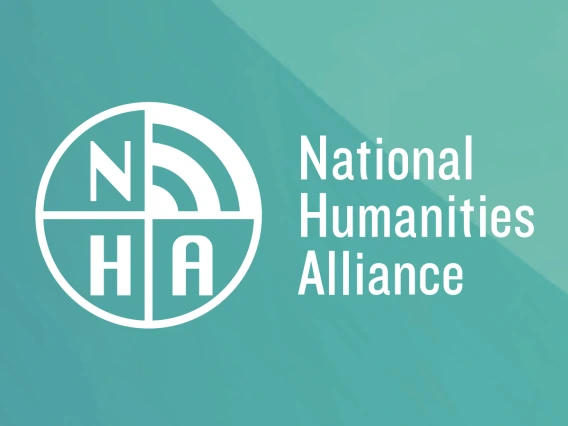
The Bachelor of Applied Humanities degree, created through collaborative partnerships across campus, was cited in a new report as one of 12 case studies of programs that successfully deliver a broad education.
“Attracting Students to the Liberal Arts Through Integrative Curricula,” from the National Humanities Alliance, started with a survey to deans at 857 institutions and ultimately produced the dozen in-depth case studies analyzing particular programs at colleges and universities of varying types and sizes.
“At a time when more and more undergraduates are pursuing specialized, technical curricula, initiatives that integrate learning across disparate fields help demonstrate the value of a broad-based education,” the report stated.
At the University of Arizona, the Department of Public and Applied Humanities was founded in 2017 to integrate robust humanities study with pre-professional training. As of September, the program has grown to 381 enrolled majors, the result of steady annual growth.
“The department has succeeded by meeting students halfway—quite literally—with a degree program that is essentially half humanities and half pre-professional training,” the report states. “By providing students with a clear career path based on their interests and demonstrating the value of the humanities for their chosen field, it enables more students to pursue a robust liberal arts education with confidence.”
Alain-Philippe Durand, Dorrance Dean of the College of Humanities, said he is grateful for the enthusiasm that collaborators on campus have shown for the program and hopes the mutually beneficial partnerships will continue extending to more areas of the university.
“I was convinced when I first came up with the idea for this degree that it would align very well with today’s global job market needs,” he said. “In the years since, our partners on campus and the students themselves have demonstrated that a forward-thinking, skill-oriented humanities education is excellent preparation for any number of career paths.”
The report attributes the success of the Applied Humanities major to its flexible structure and collaborative partnerships across the university, which continue to be expanded as students flock to the department. The program has partnerships with eight other colleges on campus and offers 11 distinct emphases: Business Administration, Engineering Approaches, Environmental Systems, Fashion Studies, Game Studies, Medicine, Plant Studies, Public Health, Rural Leadership and Renewal, Spatial Organization & Design Thinking, and Consumer, Market, and Retail Studies.
“The Department of Public and Applied Humanities has expanded the reach of the humanities at the University of Arizona. Ultimately, it will increase the humanities’ impact on the industries its graduates enter,” according to the report.
“The humanities will survive—and thrive—by adapting, and doing so at the University of Arizona has given us numerous opportunities to experiment and fund initiatives that we think signal the future of the humanities,” said Ken McAllister, Associate Dean of Research & Program Innovation. “It’s opened up new opportunities for meaningful collaboration.”
All Applied Humanities students, no matter their area of emphasis, take the same three core courses to start the interdisciplinary program: “Introduction to Applied Humanities,” “Applied Humanities Practice: Techniques and Technologies for Public Enrichment,” and “Intercultural Competence: Culture, Identity, Adaptation, and Intercultural Relations.”
“We get to create transdisciplinary spaces by design, as every core course has students from across the emphases,” said Public and Applied Humanities Department Head Judd Ruggill. “The students are, therefore, always working in diverse teams. Business administration students are often pretty different from fashion studies students, who tend to be different from game studies students, who are different from rural leadership and renewal students. And so they’re learning not just from us, but from one another. They get to bring their specialization to the classroom and share it with interesting groups of people that they likely wouldn’t connect with otherwise.”
The curriculum also emphasizes professional development through a required three-course series: pre-internship, internship and capstone.
“PAH graduates are debunking misleading myths about humanities majors’ job prospects by securing exciting jobs right out of college,” the report states. “By providing infrastructure for an expanding array of integration of humanities and pre-professional training, PAH has shifted perceptions concerning how the humanities contribute to students’ professional success at U of A.

